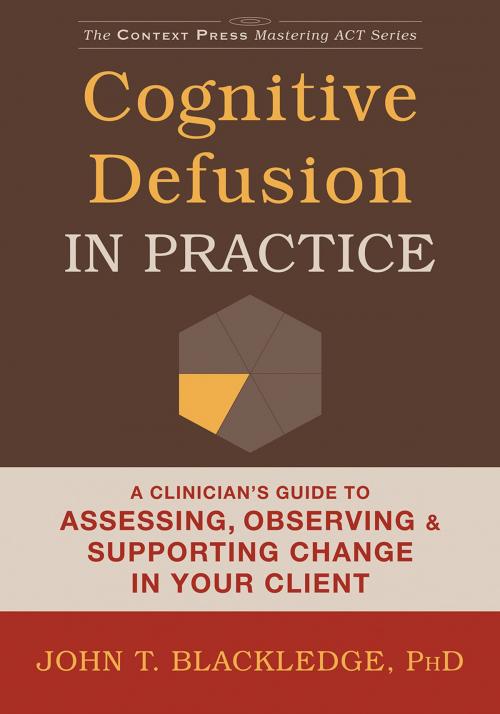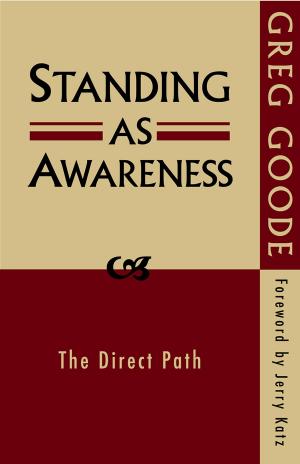Cognitive Defusion in Practice
A Clinician's Guide to Assessing, Observing, and Supporting Change in Your Client
Nonfiction, Health & Well Being, Psychology, Clinical Psychology, Psychotherapy| Author: | John T. Blackledge, PhD | ISBN: | 9781608829828 |
| Publisher: | New Harbinger Publications | Publication: | February 2, 2015 |
| Imprint: | Context Press | Language: | English |
| Author: | John T. Blackledge, PhD |
| ISBN: | 9781608829828 |
| Publisher: | New Harbinger Publications |
| Publication: | February 2, 2015 |
| Imprint: | Context Press |
| Language: | English |
This is a must-have book for anyone who practices, or is interested in, acceptance and commitment therapy (ACT).
Most people in the psychological community are familiar with the concept of cognitive defusion. This important practice rests on the premise that many of our thoughts, particularly self-evaluative thoughts (I’m not good enough, There’s something wrong with me, etc.), do not capture the full reality of a situation. Defusion techniques are used to undermine the authoritative nature of our thoughts, to expose them as simply words, rather than truths etched in stone.
Designed for use by mental health professionals and graduate students, Cognitive Defusion In Practice clearly conceptualizes cognitive defusion—an integral aspect of acceptance and commitment therapy (ACT)—for accessible and practical reference. The book also provides comprehensive descriptions of a great variety of defusion techniques, and illustrates how and when to introduce defusion in therapy.
This is a comprehensive, definitive, authoritative text on cognitive defusion: what it is, how to use it in session, and why it works. Because cognitive defusion is so effective, a great variety of defusion techniques are used in ACT to help clients gain greater psychological flexibility, but before now, there has not been a definitive resource available that outlines the practice in detail. This book will make a wonderful addition to your professional library, and will greatly enhance your delivery of ACT.
This is a must-have book for anyone who practices, or is interested in, acceptance and commitment therapy (ACT).
Most people in the psychological community are familiar with the concept of cognitive defusion. This important practice rests on the premise that many of our thoughts, particularly self-evaluative thoughts (I’m not good enough, There’s something wrong with me, etc.), do not capture the full reality of a situation. Defusion techniques are used to undermine the authoritative nature of our thoughts, to expose them as simply words, rather than truths etched in stone.
Designed for use by mental health professionals and graduate students, Cognitive Defusion In Practice clearly conceptualizes cognitive defusion—an integral aspect of acceptance and commitment therapy (ACT)—for accessible and practical reference. The book also provides comprehensive descriptions of a great variety of defusion techniques, and illustrates how and when to introduce defusion in therapy.
This is a comprehensive, definitive, authoritative text on cognitive defusion: what it is, how to use it in session, and why it works. Because cognitive defusion is so effective, a great variety of defusion techniques are used in ACT to help clients gain greater psychological flexibility, but before now, there has not been a definitive resource available that outlines the practice in detail. This book will make a wonderful addition to your professional library, and will greatly enhance your delivery of ACT.















